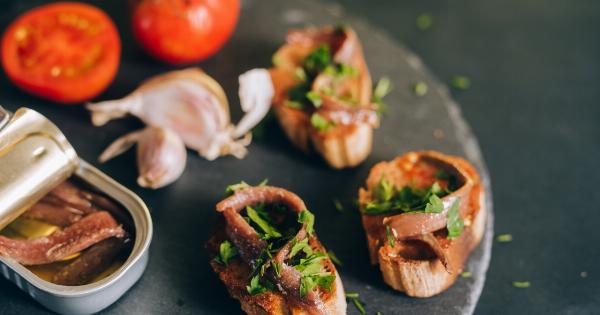During pregnancy, it is crucial to maintain a healthy and balanced diet to provide essential nutrients for both the mother and the developing baby.
As a pregnant woman’s nutritional needs are different from those of a non-pregnant individual, it is important to understand how much to eat and what to include in your diet to ensure a healthy pregnancy. This pregnancy nutrition guide will provide you with a comprehensive overview of how much you should eat during pregnancy to support your and your baby’s nutritional needs.
Understanding Calorie Intake During Pregnancy
Calorie requirements during pregnancy vary depending on various factors, including the mother’s pre-pregnancy weight, activity level, and stage of pregnancy.
Generally, pregnant women require an additional 300-500 calories per day during the second and third trimesters.
The American College of Obstetricians and Gynecologists (ACOG) provides the following calorie intake guidelines for pregnancy based on the mother’s pre-pregnancy weight:.
1. Underweight (BMI less than 18.5)
If you were underweight before pregnancy, you may need to consume additional calories to support your baby’s growth. A range of 28-40 pounds is considered healthy weight gain for underweight women during pregnancy.
Consult with your healthcare provider to determine the appropriate calorie intake for your specific needs.
2. Normal Weight (BMI 18.5-24.9)
If you had a normal weight before pregnancy, you should aim to gain 25-35 pounds during pregnancy. This weight gain includes the baby’s weight, placenta, amniotic fluid, increased blood volume, and other changes.
The additional calories required to support this weight gain may vary but typically range from 300-500 extra calories per day.
3. Overweight (BMI 25-29.9)
Women who were overweight before pregnancy should aim for a weight gain of 15-25 pounds during pregnancy. The extra calories required may be less than for women in the normal weight range, typically ranging from 200-300 additional calories per day.
However, it is essential to consult with your healthcare provider to determine the appropriate calorie intake based on your specific situation.
4. Obese (BMI over 30)
Obese women should aim for a weight gain of 11-20 pounds during pregnancy. The calorie intake required may be lower than for women in other weight categories, typically ranging from 200-300 additional calories per day.
However, it is crucial to consult with your healthcare provider to determine the appropriate calorie intake based on your specific situation.
Key Nutrients for a Healthy Pregnancy
In addition to meeting the appropriate calorie intake, it is important to focus on consuming a variety of nutrients that are particularly important during pregnancy. Here are some key nutrients that pregnant women should prioritize:.
1. Folic Acid
Folic acid is essential for the development of the baby’s neural tube, which eventually forms the baby’s brain and spinal cord. It is recommended to consume at least 600 micrograms (mcg) of folic acid per day during pregnancy.
Good food sources of folic acid include leafy green vegetables, citrus fruits, beans, and fortified cereals.
2. Iron
Iron is vital for the production of hemoglobin, the protein in red blood cells that carries oxygen. Pregnant women need more iron to support the increased blood volume and for the baby’s growth.
The recommended intake for pregnant women is 27 milligrams (mg) per day. Iron-rich foods include lean meats, poultry, fish, beans, and fortified cereals.
3. Calcium
Calcium is essential for the development of the baby’s bones and teeth. Pregnant women should aim for 1,000 milligrams (mg) of calcium per day.
Good sources of calcium include milk, yogurt, cheese, fortified plant-based milk, and leafy green vegetables.
4. Omega-3 Fatty Acids
Omega-3 fatty acids, particularly DHA (docosahexaenoic acid), are crucial for the baby’s brain and eye development. Pregnant women should aim for at least 200-300 milligrams (mg) of DHA per day.
Good sources of omega-3 fatty acids include fatty fish like salmon, sardines, and trout, as well as flaxseeds and chia seeds.
5. Vitamin D
Vitamin D is important for calcium absorption and bone health in both the mother and the baby. Pregnant women should aim for at least 600 international units (IU) of vitamin D per day.
Good sources of vitamin D include fatty fish, fortified dairy products, and sunlight exposure in moderation.
Meal Ideas for a Healthy Pregnancy Diet
Now that you have a better understanding of the recommended calorie intake and key nutrients, here are some meal ideas to help you maintain a healthy and balanced pregnancy diet:.
1. Breakfast
– Vegetable omelet with whole-grain toast
– Yogurt with berries and granola
– Overnight oats with nuts and dried fruits
– Smoothie made with spinach, banana, and almond milk.
2. Snacks
– Apple slices with peanut butter
– Carrot sticks with hummus
– Greek yogurt with mixed nuts
– Trail mix with dried fruits and seeds.
3. Lunch
– Grilled chicken or tofu salad with mixed greens, avocados, and cherry tomatoes
– Quinoa and black bean wrap with salsa and Greek yogurt sauce
– Lentil soup with whole-grain bread
– Vegetable stir-fry with brown rice.
4. Dinner
– Baked salmon with roasted vegetables and quinoa
– Lean beef or plant-based burger with sweet potato fries
– Whole-wheat pasta with tomato sauce and sautéed vegetables
– Grilled chicken breast with steamed broccoli and brown rice.
Incorporate Exercise into Your Routine
In addition to maintaining a healthy and balanced diet, regular exercise is also beneficial during pregnancy. Staying active can help improve mood, boost energy levels, and promote better sleep.
However, it is important to consult with your healthcare provider before starting or continuing any exercise routine during pregnancy. They can provide specific recommendations based on your individual health status.
Remember to stay hydrated throughout the day and listen to your body’s hunger and fullness cues. It is important to focus on nutrient-dense foods rather than empty calories.
If you have any concerns or questions about your pregnancy diet, always consult with your healthcare provider or a registered dietitian who specializes in prenatal nutrition.
Conclusion
A healthy and balanced diet is vital during pregnancy to support the growth and development of the baby. Understanding how much to eat and what nutrients to focus on can help ensure a smooth and healthy pregnancy journey.
By following the recommended calorie intake guidelines, prioritizing key nutrients, and incorporating meal ideas into your diet, you can provide the essential nourishment both you and your baby need for a healthy pregnancy.
























